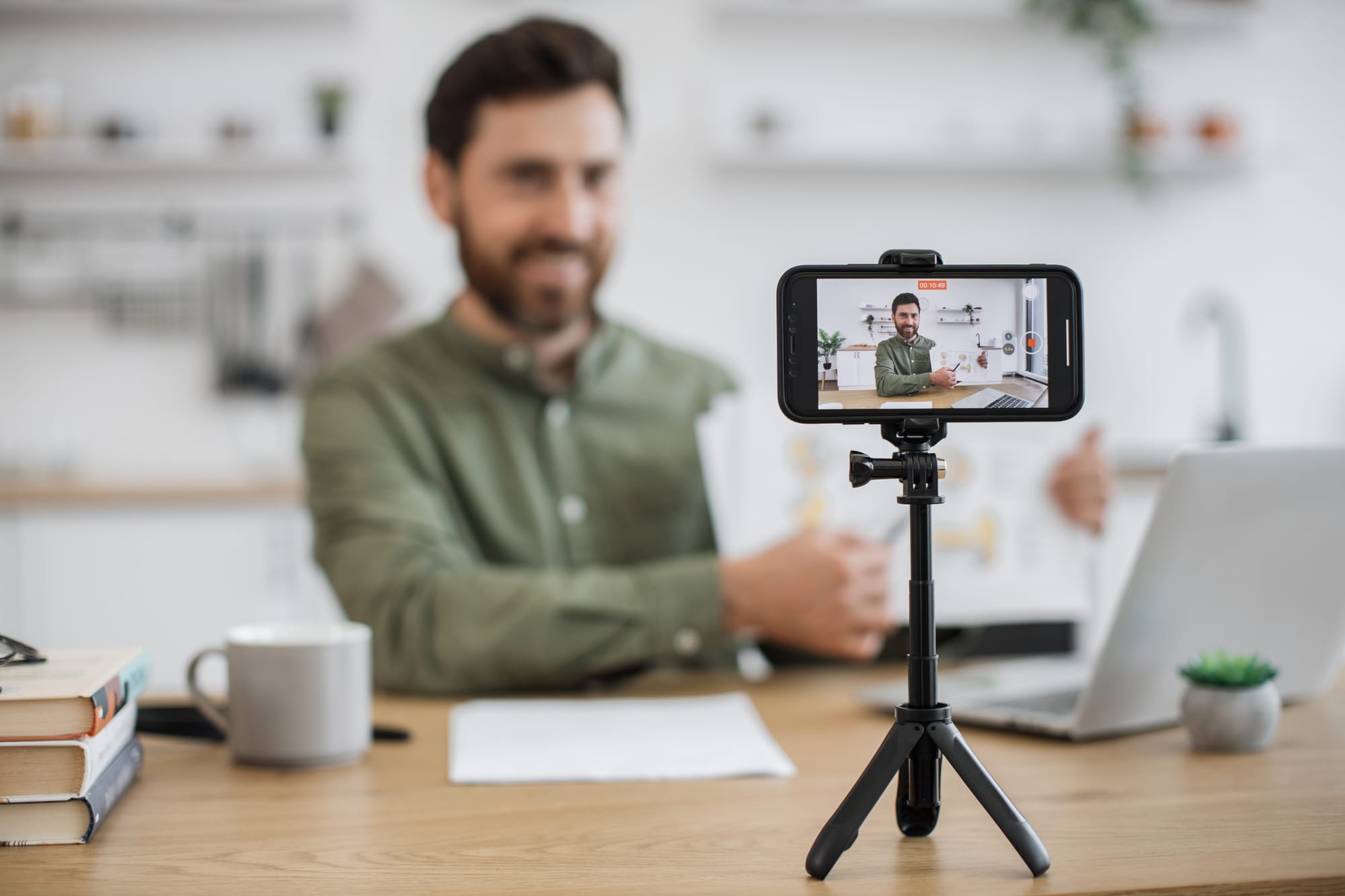Lawyers leverage video
Plus: Don't have too much fun marketing your law firm

Video has become an essential tool in nearly every aspect of modern life, including law practice. From virtual court hearings to client consultations, firm marketing and even evidentiary presentations, video is reshaping how lawyers communicate, advocate and connect.
As courts and clients alike grow more accustomed to visual storytelling, attorneys who embrace video will find new opportunities to enhance their practice, streamline workflows and engage more effectively in an increasingly digital world. This week, we round up some unique uses of video.
Plus, we’ve got some tips on how to develop your firm’s management team and a cautionary tale about making your marketing too fun.

Escheat happens. And Planet Money has a whole podcast episode on it.
Finally, a return-to-office policy we can get behind. Thanks, @middleclassfancy, for the Instagram inspo!
My contribution to the national security group chat. At least we are getting some good memes out of this mess.
For sale: 15 million people’s DNA. 23andMe puts bankruptcy law in the spotlight.
Never ever represent a family member. We should all get CLE credit for reading this Reddit.


A picture’s worth 1,000 words. A video’s worth even more.
When you think about innovation, Wichita, Kan., probably isn't the first place that comes to mind. But, personal injury lawyer Tyler Patterson plans to change that. Patterson’s embrace of technology-assisted storytelling is helping Patterson Legal Group become the go-to practice for Midwesterners who have suffered serious trauma. Raise the Bar sat down with Patterson to discuss his cutting-edge approach to client advocacy. -Emily Kelchen
You and your firm are becoming well-known for your use of graphics and videos. Why are you moving in this direction?
We live in a world where we are scrolling through social media and attention spans are shrinking, so a well-placed graphic or video is worth more than ten minutes of talking. Whether our audience is an insurance adjuster, opposing counsel or a jury, a photo, a demonstrative or a short video showing the challenges a client faces every day can make an impact in a way that words alone never could. It’s not about flash; it’s about making sure the most important parts of the case resonate.
Is this something you do in-house?
I'm lucky to have a great team of people to help out with this. Ella Reusser, our marketing director, coordinates with our in-house graphic designer for a lot of projects. We also work with videographer Andrew Kivett of Kivett Social when we want to put together a "Day in the Life" video or a highlight reel of video depositions.
Our social media accounts are also video-heavy, and Kivett works with us on those too. We actually meet with him about once a week. With a busy schedule, it is easy for social media marketing to fall to the bottom of the to-do list, so having the weekly meeting keeps us on track. Many videos are lighthearted and funny, but we mix in educational videos about our firm, negotiations and the civil justice system in general.
Does being on video ever make you uncomfortable?
Absolutely, but it gets so much easier with practice. In the beginning, I overanalyzed every detail on the video, trying to make it perfect. My nerves faded when I focused on the bigger purpose—educating, advocating for my clients and adding a little entertainment along the way. The shift in focus made all the difference, and it’s a lesson I apply beyond videos. Growth happens in discomfort, and I’ve learned to embrace it. Every year, I set a big goal that pushes me out of my comfort zone. This year, some friends talked me into running the Great World Race—seven marathons on all seven continents in one week. We’re running for ICTSOS, a nonprofit dedicated to ending human trafficking. It’s an ambitious challenge, and I'm already feeling nervous and excited.
Above: A screenshot from Patterson Legal Group's Facebook page where Patterson regularly posts videos.


From Lawyer to Rainmaker: Build the Practice You Deserve
Steve Fretzin plays a unique role in helping lawyers grow beyond the billable hour. As a lawyer coach, author, and host of the BE THAT LAWYER podcast, he works with attorneys to build the business development skills they weren’t taught in law school—teaching them how to market themselves authentically, deepen client relationships, and become trusted rainmakers. With a deep understanding of the legal profession and a practical, no-fluff approach, Steve helps lawyers cut through the noise and focus on what actually drives growth.
Want real stories and actionable insights? Tune into BE THAT LAWYER, where Steve interviews top attorneys, legal marketers and business development pros who share what works. Whether you’re just starting out or ready to level up, this podcast delivers strategies to move your practice forward. Listen here.

Building a better management team
Great law firm managers do more than just oversee the work of junior associates—they understand what motivates their coworkers, communicate clear expectations and support the career growth of everyone on their team. In order to do this, managers must be able to build trust, know how to have difficult conversations and give meaningful feedback. Thankfully, these are all skills that can be learned since being a good attorney doesn’t automatically make someone a great leader.
"A good manager takes the time to understand people on their team,” says Elise Powers, founder and chief executive officer of Eleview Consulting, a company that trains professionals and attorneys on core interpersonal skills.
Why this matters: Law firms that invest in developing strong managers create happier, more engaged teams and reduce turnover. Research shows that the best way to do this is to provide structured training, mentorship and feedback to new managers. (Association of Legal Administrators)

Daubertize this
As part of his dissent in a Second Amendment case, Judge Lawrence VanDyke of the Ninth Circuit recorded an 18-minute video of himself disassembling firearms to argue against the court’s decision upholding California’s ban on large-capacity magazines. VanDyke criticized his colleagues’ understanding of firearms and asserted that he planned to explain his concerns in writing but realized showing was more effective than telling. His approach drew a sharp rebuke from Judge Marsha Berzon, who wrote a separate concurring opinion saying the “wildly improper video presentation warrants additional comment, lest the genre proliferate.”
Why this matters: This is the first time we have ever seen anything like this, but VanDyke’s video debut may be part of a broader strategy among Trump appointees to showcase their conservative credentials. The controversy surrounding his approach underscores the evolving role of dissents in shaping legal debates, as well as concerns about the court’s willingness and ability to embrace technology.
(United States Court of Appeals for the Ninth Circuit's YouTube Channel)

The trial attorney teaching the internet how to argue
Texas attorney Jefferson Fisher has “gone viral” more than once, but it is not his take on personal injury law that has people tuning in to what he has to say. Fisher has built an impressive following by distilling effective communication strategies into short, engaging social media videos—and expanding on those topics on his podcast. His practical advice, delivered from his pickup truck, emphasizes structuring your conversations, practicing active listening and defusing conflicts with clarity and confidence.
Why this matters: His insights resonate beyond legal circles, offering valuable tools for attorneys and clients alike to navigate difficult discussions effectively. Tune in for the communications advice, but also think about utilizing Fisher's strategy and marketing a skill you have to boost your business instead of (or in addition to) advertising the business itself. (New York Times)

- Speaker Johnson suggests eliminating some federal courts
- Trump opponents are having a hard time finding attorneys
- Congress takes aim at nationwide injunctions
- Delaware poised to modify its corporate law
- California legislation would prohibit civil litigants from using AI as a defense

Too fun to be marketing?
Tax season is upon us, which is a reminder that money spent on marketing is generally tax deductible. However, the 10th Circuit Court of Appeals is putting the brakes on marketing that is too fun. The court recently upheld a U.S. Tax Court ruling denying a lawyer’s attempt to deduct car racing expenses. Attorney James William Avery claimed that racing, with his law firm’s decal on his car, was a client development strategy. However, the court found that such expenses were not "ordinary" or “necessary” legal marketing in part because Avery personally enjoys racing. Avery has asked the court to reconsider its decision.
Why this matters: If the IRS is going to disallow the deduction of marketing that is too enjoyable, we’re in trouble. Some of the most effective marketing dollars are spent in non-traditional ways. It is now more important than ever for firms to measure the impact of all their marketing—like asking potential clients how they heard about you and keeping track of that info. (The Missouri Bar)

Thank you for reading Raise The Bar.
Every Thursday, you'll hear from our team about the most pressing issues facing legal practices today. We'll also try to include some quick-hit reads that touch on interesting cases and precedents being set worldwide.
Have anything you'd like us to cover? Send an email to raisethebar@mynewsletter.co
Raise the Bar is curated and written by Emily Kelchen and edited by Bianca Prieto.

